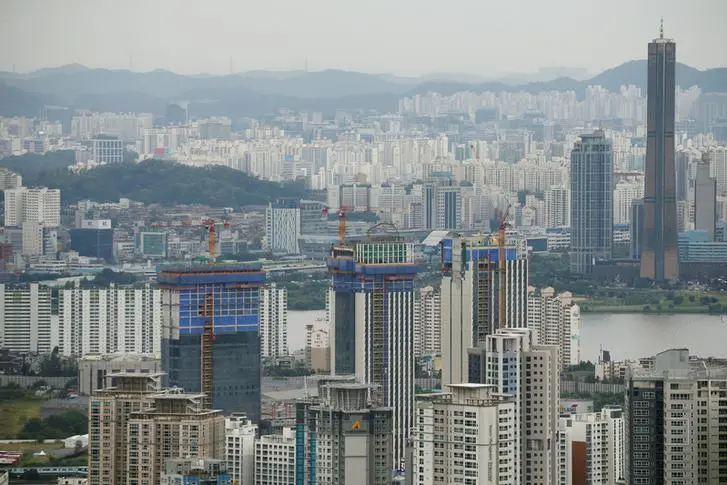PHOTO
SEOUL - South Korea cut its 2018-2019 economic growth outlook to the lowest in six years on Monday, with the economy hurt by weak investment and global trade disputes, but it pledged to ensure that the benefits of growth are distributed more equally.
Asia's fourth-largest economy, which relies heavily on exports, is expected to post annual growth of between 2.6 and 2.7 percent this year and next year, down from 2.9 percent this year and 2.8 percent for 2019 projected in July.
"The economy is faced with downward risks such as deepening trade disputes, spreading financial instability in emerging markets amid the normalising monetary policy by the major countries," it said in a scheduled policy statement.
This year's growth would be the slowest pace since 2.3 percent posted in 2012, and next year's projection appeared to be more optimistic than forecasts by global investment banks of as low as 2.3 percent.
Analysts said the government's more ambitious GDP target indicated it would pay greater attention to economic growth, although it shows no sign of making a sharp turn away from its stance of focusing more on welfare and income distribution.
"The ministry's growth projection is more a goal than a forecast, and I think the government wants to show it is caring about growth more by setting an ambitious growth target," said Park Sang-hyun, economist at Leading Investment & Securities.
WAGE HIKES MAY SLOW
President Moon Jae-in, whose approval ratings have fallen to the lowest since his inauguration in May 2017 on criticism about his economic policy direction, told economy-related ministers on Monday to aggressively remove hurdles to corporate investment.
He also said the government may take steps to cushion the effects of a sharp, 29 percent hike in minimum wages over two years, hinting at a slowing pace of further increases.
Big minimum wage increases and a shorter work week have backfired, with lower income earners hurt instead as employers cut back hiring.
The finance ministry also lowered next year's consumer inflation forecast to 1.6 percent from 1.8 percent seen in July, while maintaining this year's at 1.6 percent, compared with the central bank's target of 2 percent.
This contrasts with the central bank's forecast for a gradual rise in inflation and supports the market's view that the Bank of Korea would leave interest rates unchanged throughout next year after raising rates on Nov. 30.
The ministry extended by six months a 30 percent cut in consumption tax for passenger cars beyond the end-2018 deadline, but maintained its policy of focusing more on an equitable wealth distribution than on seeking higher economic growth.
(Additional reporting by Yena Park; Editing by Sam Holmes and Jacqueline Wong) ((Hayoung.Choi@thomsonreuters.com; +82 2 3704 5643; Reuters Messaging: hayoung.choi@thomsonreuters.com))





















